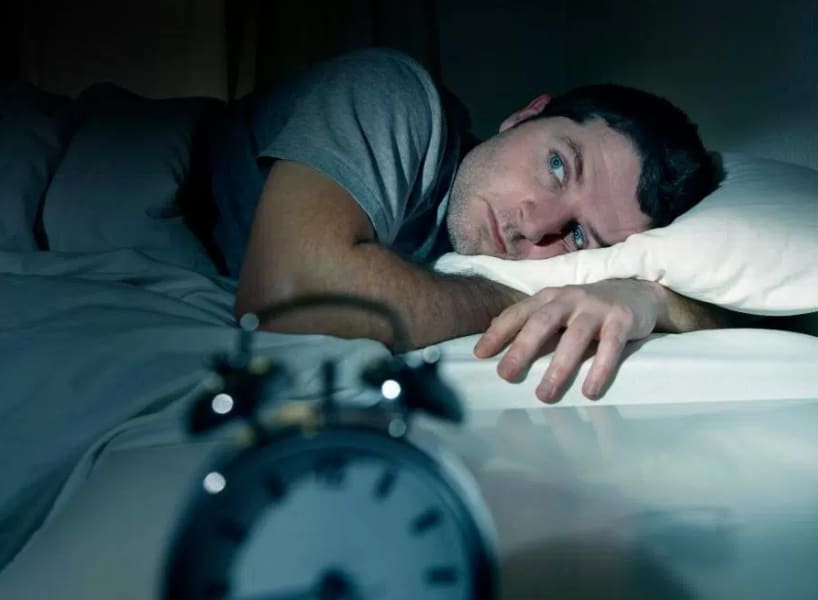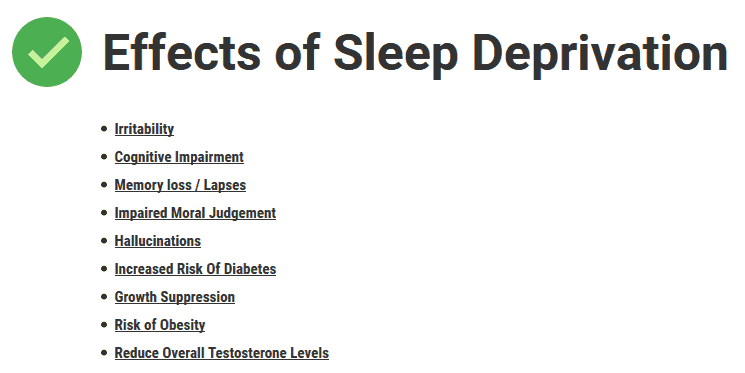Insomnia and Testosterone: How A Poor Night’s Sleep Affects Testosterone
Fact Checked On: 5-3-2018 By: Rob MillerHome » testo-no-ads » Insomnia and Testosterone: How A Poor Night’s Sleep Affects Testosterone
Contents
The Role of Sleep in Your Body
Sleep and Testosterone
Does a Lack of Sleep Hurt Testosterone Levels
Causes of Insomnia and Bad Sleep
How to Sleep Better
Do High Testosterone Levels Affect Your Sleep
In the modern age, sleep has become more and more of a luxury.
Whether it’s the demands of a job, the needs of our family, or Netflix binging that results in only getting 5 hours of shut eye, as a nation, we are getting less sleep.

The Center for Disease Control calls for 7 to 8 hours of sleep each night for adults and even more for adolescents. (Source)
What happens when you don’t sleep?
Chronic fatigue, slower cognitive speeds, and mood swings are just a few of the most common symptoms.

For men, there is another concern: low testosterone levels.
Is there a connection between healthy sleep and healthy testosterone levels?
Let’s review the role of sleep in your body along with the influence it has on the average guy’s testosterone levels.
The Role of Sleep in Your Body
Each day, your body accumulates a huge amount of waste.
With the foods we eat and the process of digestion aside, your body builds up a collection of waste on a cellular level.
Most of it is from simply living and breathing.
Some waste is from stress and even more of it comes from the environment we live in.
During our waking hours, our bodies are in function-mode but when the sun sets and we hit the pillow, our bodies shut down to focus on recovery and wiping the slate clean for the next day.
Sleep is when our bodies get to work tossing out the garbage, repairing muscle tissue, and much more.
Here are just some of the areas that sleep can have a positive impact on assuming you are sleeping the appropriate number of hours of sleep each night:
- Cognitive functioning
- Brain health
- Cardiovascular health
- Heart health
- Condition of muscle tissue
- Health of your connective tissue and joints
- Decreased risk of injury
Sleep and Testosterone
Another area that sleep has a direct impact on is that of our hormone levels, namely testosterone.
It is during sleep that our body triggers the production and release of growth hormones such as testosterone.
Yes, the body does create and release testosterone throughout the day but, on average, it is during the night when men see the highest spike in testosterone.
Rapid Eye Movement or R.E.M. stages of sleep are thought to be the time when testosterone levels reach their highest point and from here, they remain consistent until you wake.
It takes around 90 minutes to enter the R.E.M. cycle of sleep and so it goes without saying that if you’re not sleeping, you’re not hitting this mark.
What does the science say about how sleep impacts testosterone levels?
Does a Lack of Sleep Hurt Testosterone Levels?
Science Says…
Less Sleep = Less Testosterone
If the science could be summed up, this is what it would say.
The amount and quality of sleep that men get each night has a direct impact on the level of their testosterone.
What many men don’t realize is that there is a vicious cycle at play here.
Anabolic vs. Catabolic Response
As mentioned above, you know that your body must enter the R.E.M. stages of sleep in order to see a spike in testosterone that lasts throughout the night.
If you aren’t sleeping, then you aren’t supporting testosterone production but you are triggering an increase in the release of a different hormone called cortisol.
Testosterone is an anabolic hormone.
That means it promotes growth and recovery.
For example, it has an important role in the development of lean mass growth.
Cortisol, on the other hand, is a catabolic hormone.
This means it likes to break things down, namely your protein.
Admittedly, cortisol is a very complicated hormone and this is an over simplification; however, studies show that consistently high levels of cortisol in the blood increase anxiety, promote sleep disturbances, and suppress testosterone levels.
The Vicious Cycle
Once you enter into this vicious cycle of not getting sleep, it’s going to be harder to pull yourself out from it.
Not getting sleep promotes the release of a hormone that decreases sleep AND decreases testosterone levels.
If you thought that was bad, low testosterone itself also promotes bad sleeping habits.
See how the odds are stacked against you?
If you want to get ahead of the chaos of insomnia, you’ll need to understand what causes it.
Causes of Insomnia and Bad Sleep
There are two ways to look at the causes of bad sleeping habits: medical and lifestyle.
On the medical side, there are a variety of treatable conditions that contribute to keeping you from R.E.M. sleep cycles and pushing you towards insomnia:
- Pain related problems such as arthritis, lower back pain, and chronic pain
- Nasal issues such as sleep apnea or allergies
- Stomach problems such as acid reflux
As for lifestyle, it’s all about choices.
Many guys will choose the following instead of sleep:
- Playing on a laptop, phone, tablet
- Letting the television stay on during the night
- Staying up past 1 a.m. (This is when you can take advantage of the highest levels of growth hormone)
- Caffeine intake
- Dietary choices
As you’ll see, most of these things can be changed or corrected.
With medical issues, visit your doctor immediately, especially if you are having problems breathing during sleep.
Your doctor can recommend a number of medications or procedures to alleviate many of these issues.
Lifestyle changes are even simpler to take care of because they require you to either start doing something or stop doing something.
How to Sleep Better
Continuing with the point above, let’s break down the best ways to help you start sleeping better.
Keep in mind that no change takes place over night and that you may need to push yourself to make these changes happen over the course of the next two weeks.
Keep trying and eventually it will become habit.
Caffeine Intake
- The world has a caffeine addiction.
While it’s helpful to kick start our days, some people tend to overdo it, resulting in higher levels of the catabolic hormone, cortisol and less sleep. Try to cut back on caffeine. You can even try substituting with tea.
I’d really recommend doing a caffeine detox for a month if you want to get yourself on track with a healthy sleep schedule.
Dietary Choices
- Eating just before bed is bad for digestion, encourages weight gain, and disrupts sleep.
Try having your last meal no less than two hours before bed.
Also, focus your diet on clean and natural foods.
Fried foods and heavily processed foods may negatively impact sleep.
Herbal and Mineral Supplements
- One of the best natural approaches to supporting your sleep cycles is to turn toward herbal remedies or herbal supplements.
Drinking an herbal tea with lavender and cat’s claw before bed has been shown to promote relaxation.
ZMA is made of zinc, magnesium, and vitamin B6 and it’s considered one of the best sleep aids on the market.
Take one serving of ZMA 30 minutes before bed to support sleep. Other notable herbal supplements include Fenugreek extract and D-Aspartic Acid.
Electronics
- The introduction of the smartphone radically changed the world.
While it makes things more convenient, it does have its drawbacks.
The light from your phone, tablet, and laptop will prevent the sleep hormone, melatonin, from being created.
Melatonin helps us fall asleep and when you limit your body’s production of it, you lessen your chances of falling asleep properly.
Try powering down all electronics an hour before bed. Switch your phone for a book.
Reading before bed has been shown to support healthy sleep cycles.
Bed Time
- What time do you get to bed each night? Are you crashing at 10 p.m.? Or are you just leaving the house?
For some of us, bed time hours are going to be hectic.
If you are on a normal schedule and able to take advantage of sleeping during the night, make sure you’re in bed before midnight. 1 a.m. marks the first hour of highest growth hormone potential.
If you want more testosterone, you’ll want to be in dream land when clock nears this time.
Exercise
- This almost goes without saying, but the a more active lifestyle will certainly lead to better quality sleep. There have also been several exercises that have shown a direct correlation on increasing testosterone.
Reduce Alcohol Use
- Alcohol has a wide variety of debilitating effects on the body, and it absolutely wreaks havoc on your sleep quality. It may help you FALL asleep faster, but your sleep quality will be severely interrupted. Alcohol basically tricks your brain into thinking your getting better quality of sleep, when in fact you’re not. Increased alcohol consumption has also been linked to an overall reduction in testosterone levels.
Do High Testosterone Levels Affect Your Sleep?
Perhaps one of the strangest occurrences in relation to sleep and testosterone is when you get too much too soon.
For men who are undergoing testosterone replacement therapy, you may experience short term insomnia.
Studies show that when administering large doses of testosterone in a short span of time, sleeping patterns were negatively impacted.
Again, think back to what I mentioned earlier: if you aren’t sleeping, you aren’t producing natural testosterone.
For older guys, the answer may be somewhere in the middle of low dose testosterone therapy and getting on a good sleeping schedule.
Remember to talk with your doctor if you’re experiencing low testosterone levels, or try out some of the various tips we recommend.
Go with the more conservative approach until your doctor recommends otherwise.
References
- Wittert G.
The relationship between sleep disorders and testosterone in men. Asian Journal of Andrology. 2014;16(2):262-265. doi:10.4103/1008-682X.122586. - Luboshitzky R, Herer P, Levi M, Shen-Orr Z, Lavie P.
Relationship between rapid eye movement sleep and testosterone secretion in normal men. J Androl. 1999 Nov-Dec;20(6):731-7. - Barrett-Connor E, Dam T-T, Stone K, et al.
The Association of Testosterone Levels with Overall Sleep Quality, Sleep Architecture, and Sleep-Disordered Breathing.
The Journal of Clinical Endocrinology and Metabolism. 2008;93(7):2602-2609. doi:10.1210/jc.2007-2622.




